
The far-right falters: Outcomes of the French snap election
Mark Leonard welcomes Célia Belin to discuss the results of the French election

Mark Leonard welcomes Célia Belin to discuss the results of the French election
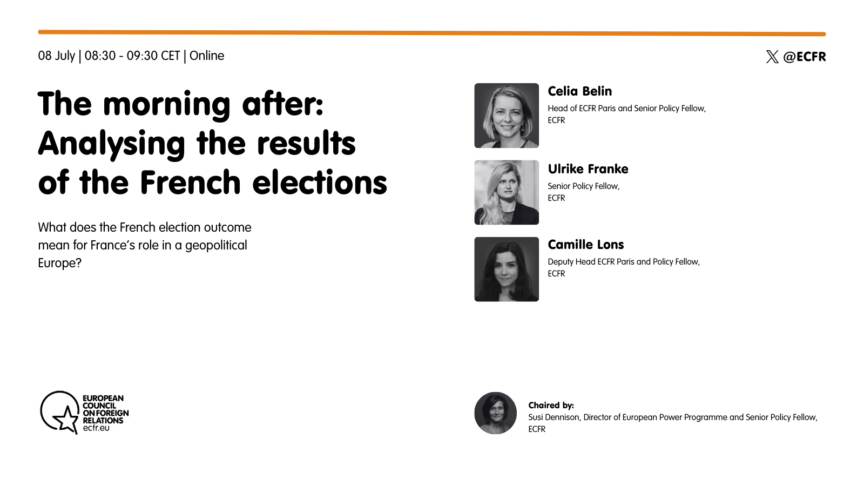
As France discovers the new making of its national assembly, this webinar will analyse the election results and reflect on their impact on a geopolitical…
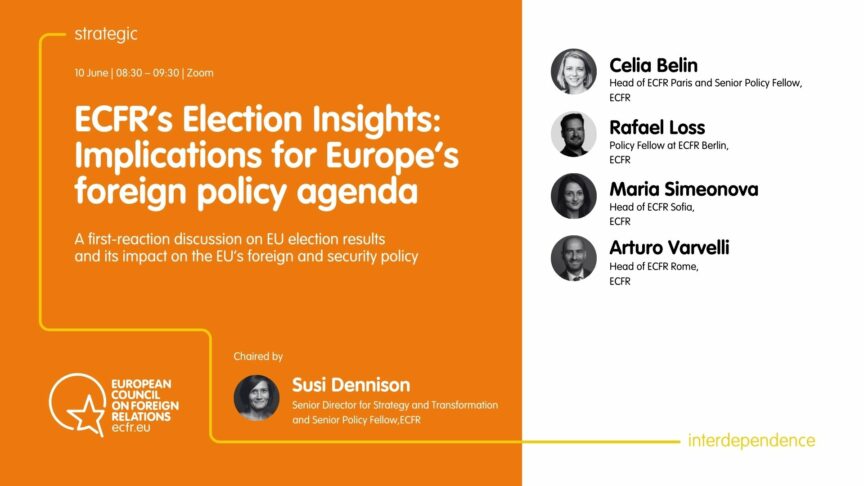
This webinar will provide a snapshot analysis of election results and their implications for Europe’s foreign policy and security agenda. Featuring perspectives from selected ECFR…
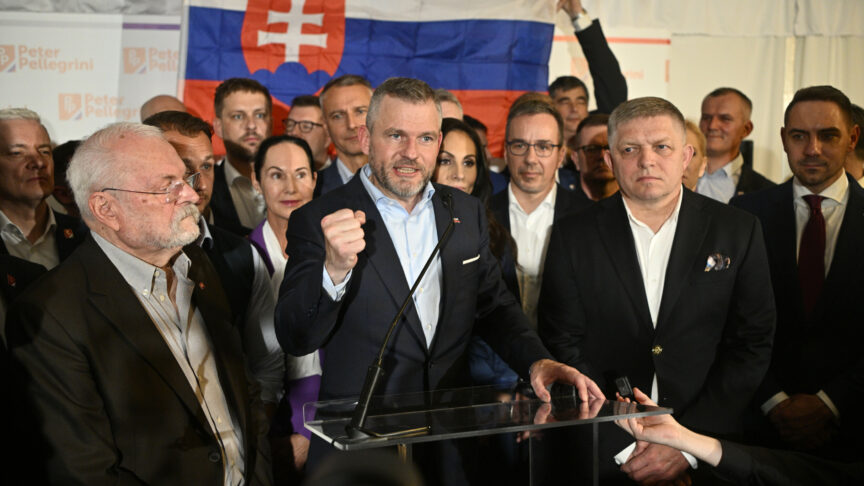
After Slovakia elected a populist president and a pro-Russian prime minister in a span of six months, the EU may be tempted to punish Bratislava. But this would risk making matters worse
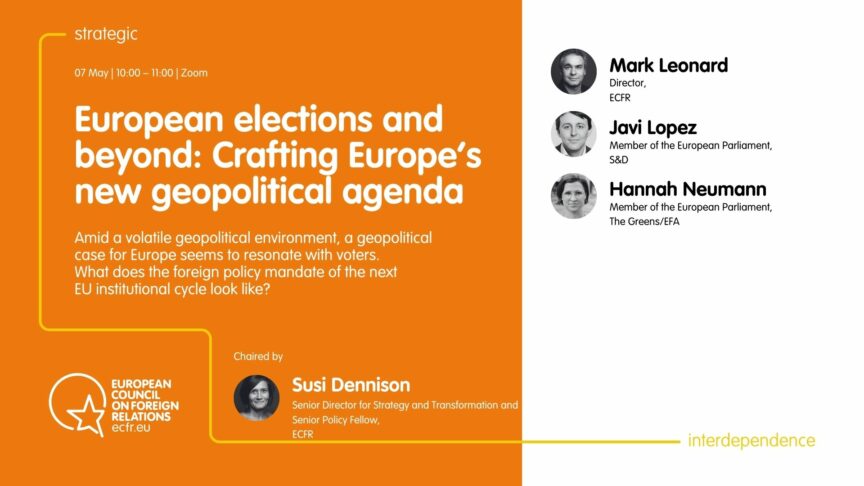
Amid a volatile geopolitical environment, ECFR’s recent public opinion poll ahead of the European elections shows that a geopolitical case for Europe resonates with voters,…

In their campaigns for the European parliament election, Germany’s pro-European parties must unite to effectively mobilise voters against the threat of the far-right party, Alternative for Germany
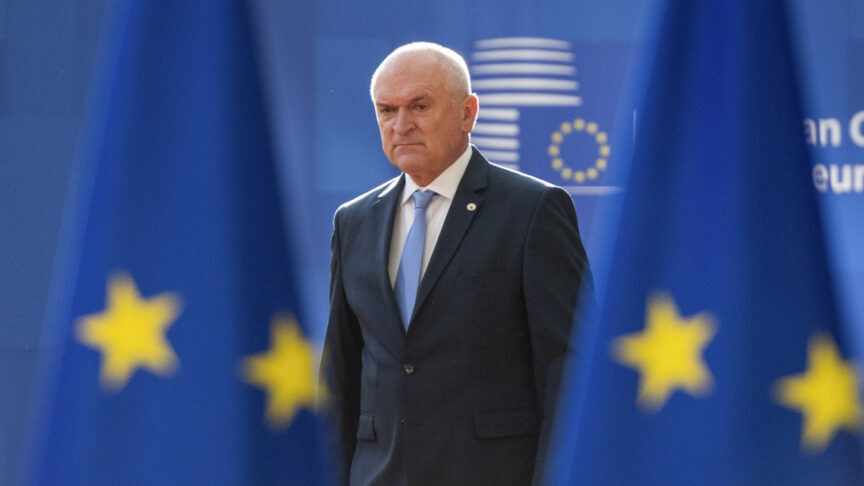
Facing its sixth election in three years, Bulgaria’s political instability risks marginalising Sofia’s role within the EU. To avoid this, the campaigns of pro-European politicians in the country must not lose sight of Bulgaria’s international position
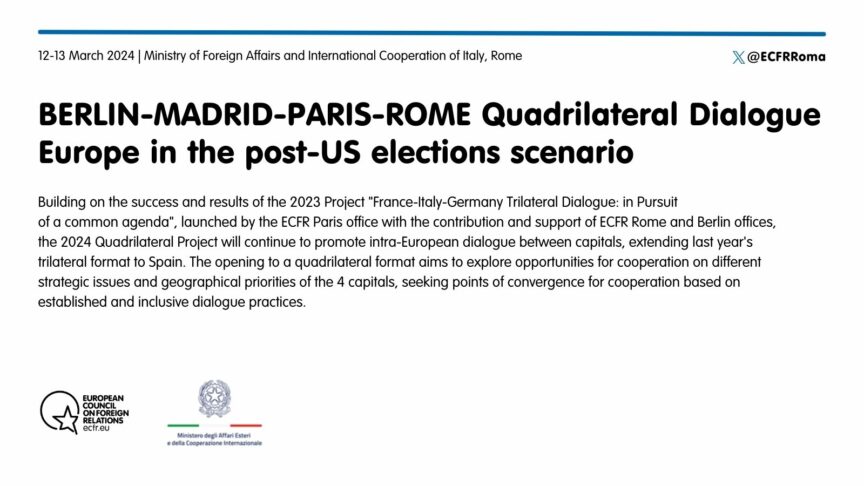
Building on the success and results of the 2023 Project “France-Italy-Germany Trilateral Dialogue: in Pursuit of a common agenda”, the 2024 Quadrilateral Project will continue to promote intra-European dialogue between capitals, extending last year’s trilateral format to Spain
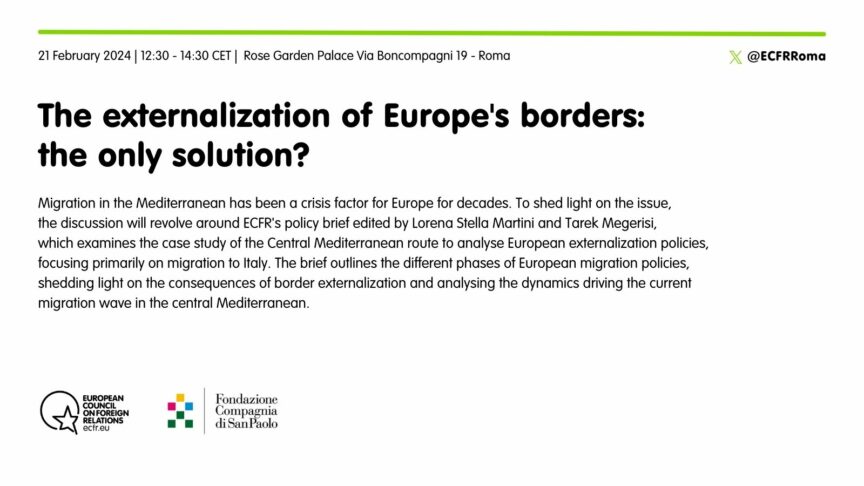
Migration in the Mediterranean has been a crisis factor for Europe for decades. To shed light on the issue, the discussion will revolve around ECFR’s policy brief edited by Lorena Stella Martini and Tarek Megerisi, which examines the case study of the Central Mediterranean route to analyse European externalization policies, focusing primarily on migration to Italy
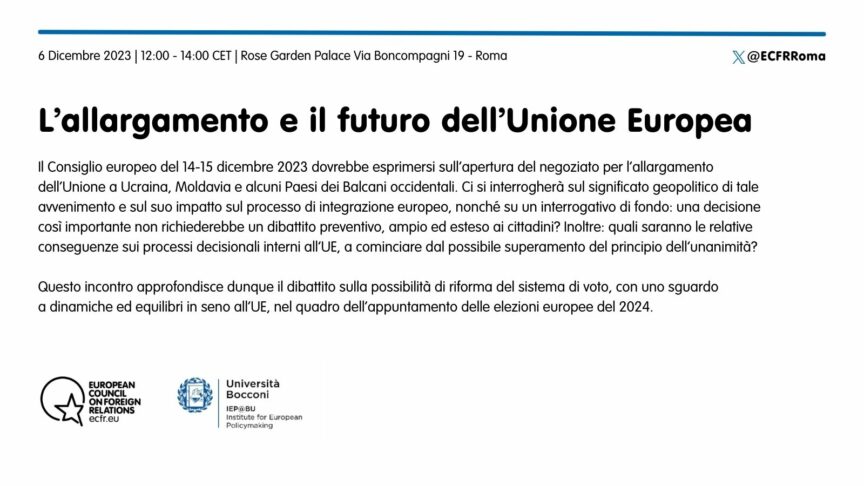
Secondo appuntamento di una serie di tre working lunch realizzati congiuntamente da ECFR Roma, SDA Bocconi e l’Institute for European Policymaking @ Bocconi University

The next French president should pursue a strong European foreign policy agenda to protect Europeans against the threats they are most concerned about
Support for membership of the European Union is currently high, but so too is pessimism about the future of the European project

After Slovakia elected a populist president and a pro-Russian prime minister in a span of six months, the EU may be tempted to punish Bratislava. But this would risk making matters worse

In their campaigns for the European parliament election, Germany’s pro-European parties must unite to effectively mobilise voters against the threat of the far-right party, Alternative for Germany

Facing its sixth election in three years, Bulgaria’s political instability risks marginalising Sofia’s role within the EU. To avoid this, the campaigns of pro-European politicians in the country must not lose sight of Bulgaria’s international position
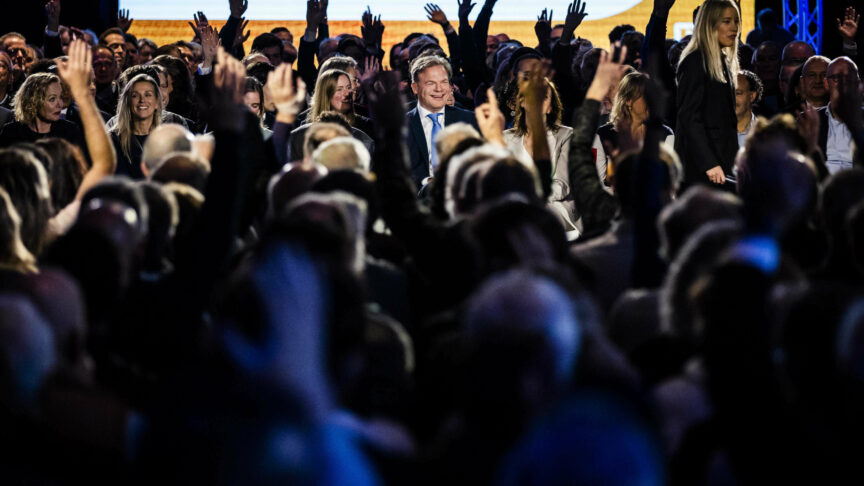
The next Dutch government will come to power amid a broad national consensus on several foreign policy topics. To capitalise on this opportunity, it will need to break with some of the traditional norms of Dutch European policy
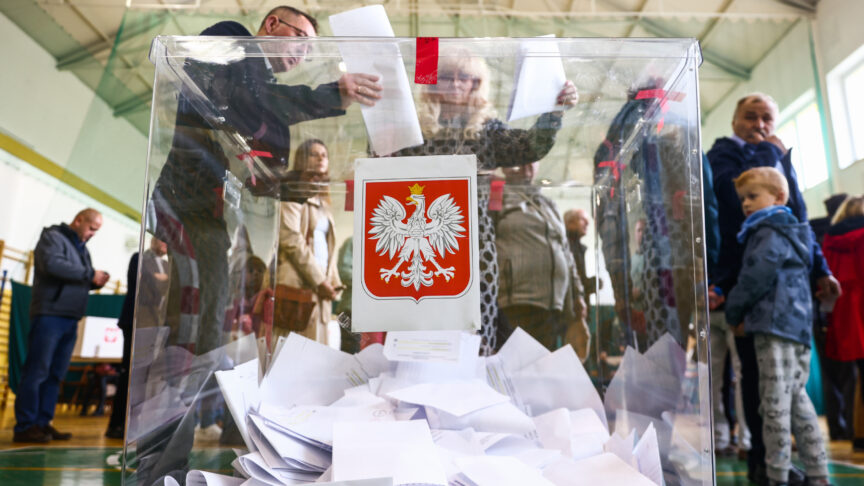
Poland is making its return to Europe – but Warsaw’s partners may still need to be a little patient yet
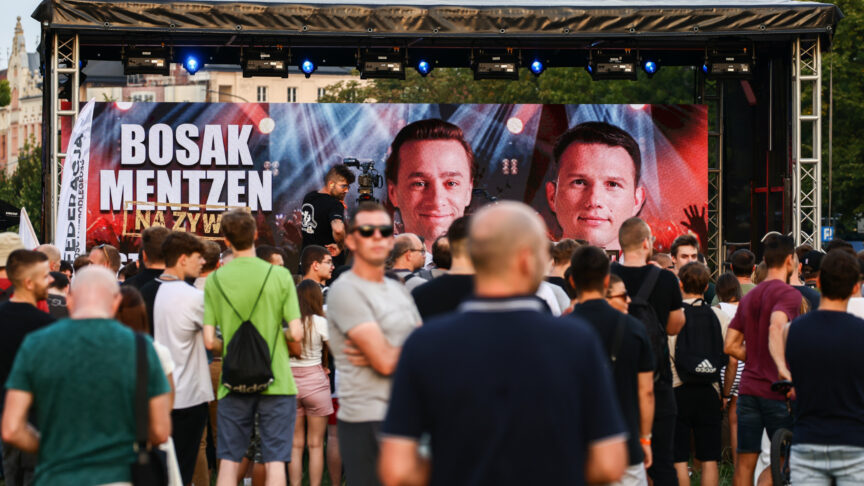
As Poland’s parliamentary election nears, the rising far-right party Confederation is set to swing the balance between right-wing incumbents Law and Justice, and the liberal opposition. An alliance with either could spell political chaos
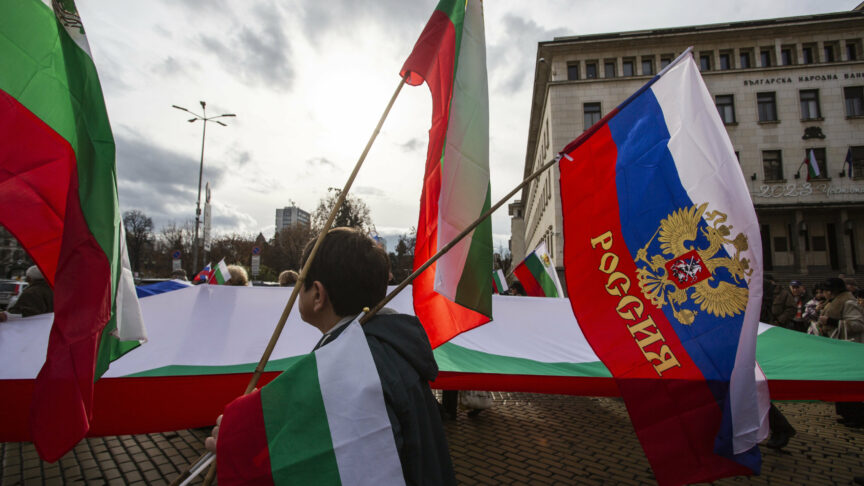
Newly released investigations have shed light on how corruption and the weak rule of law in Bulgaria enable Russian influence to thrive
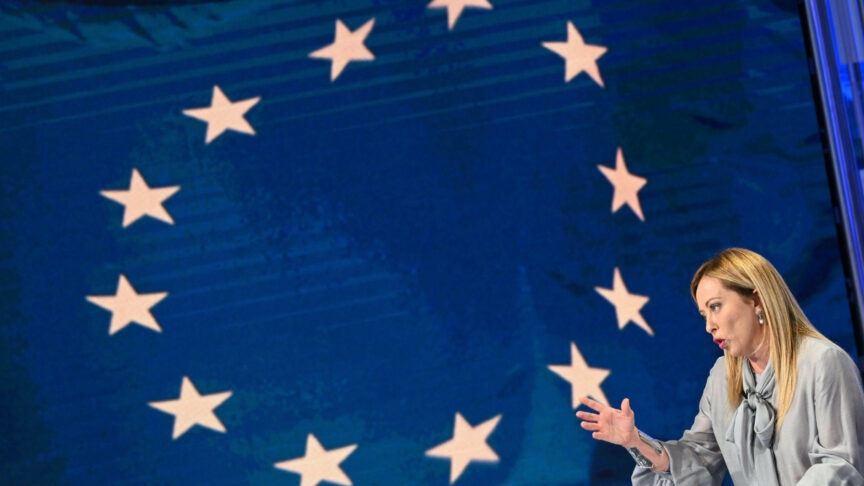
The prospect of a Brothers of Italy-led government is causing worry in capitals across Europe. But the party is having to devise a foreign policy approach within the bounds of Europeanism and transatlanticism
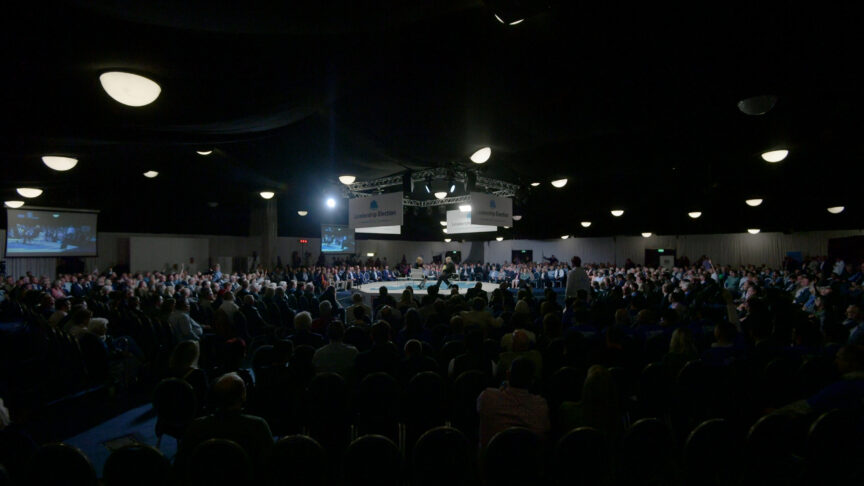
The early debates between candidates Liz Truss and Rishi Sunak lack any recognition of how Britain’s biggest foreign policy challenges relate to one another
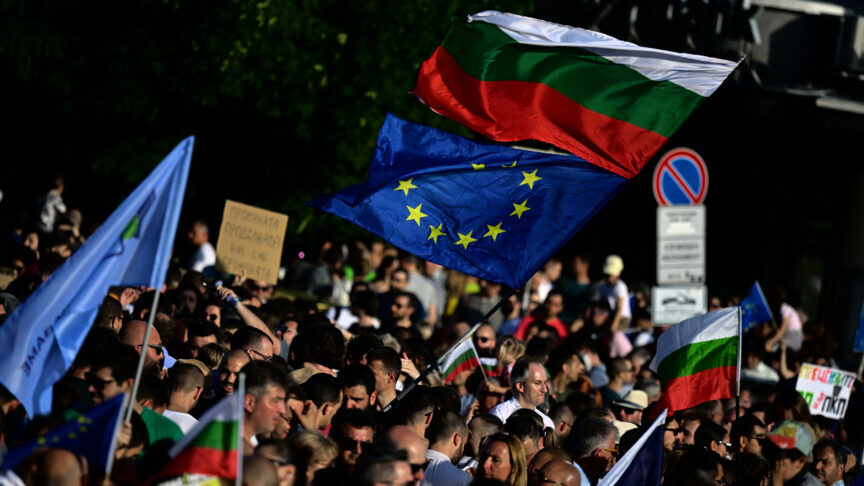
Bulgaria’s reformist government may have fallen, but this is a new era for the country. Policymakers should now build on Bulgarians’ growing sense of common purpose
Summary With anti-Europeans on their way to winning more than one-third of seats in the next European Parliament, the stakes in the May 2019 election…

Mark Leonard welcomes Célia Belin to discuss the results of the French election
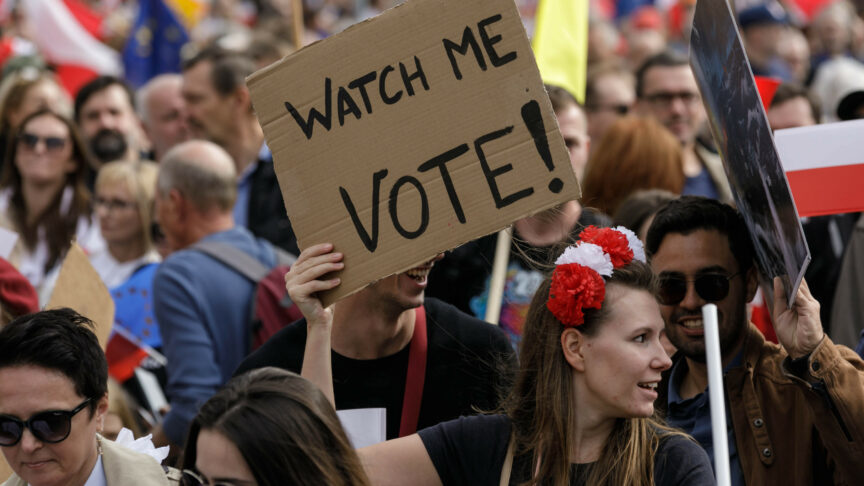
Mark Leonard welcomes José Ignacio Torreblanca and Piotr Buras to discuss recent developments in Spanish and Polish politics and their impact on Europe

Mark Leonard and his guests discuss the implications of the new government in Rome and its foreign policy agenda, including Russia and China
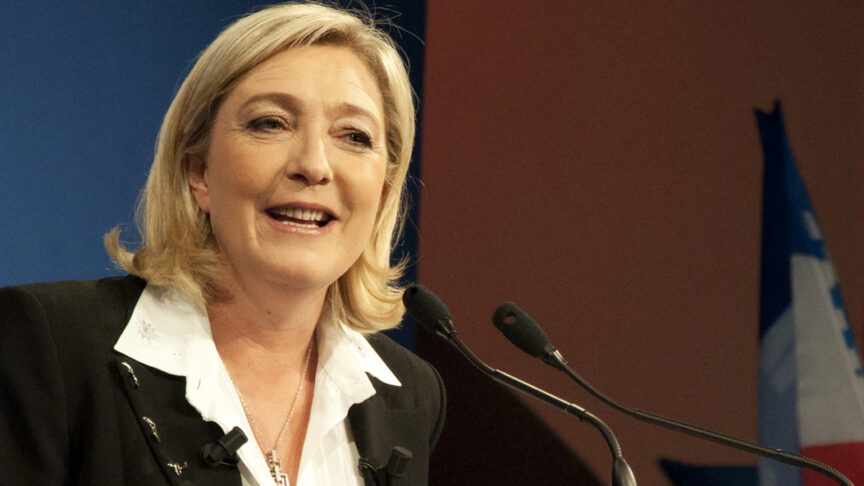
How would a Le Pen presidency affect Europe and the world?
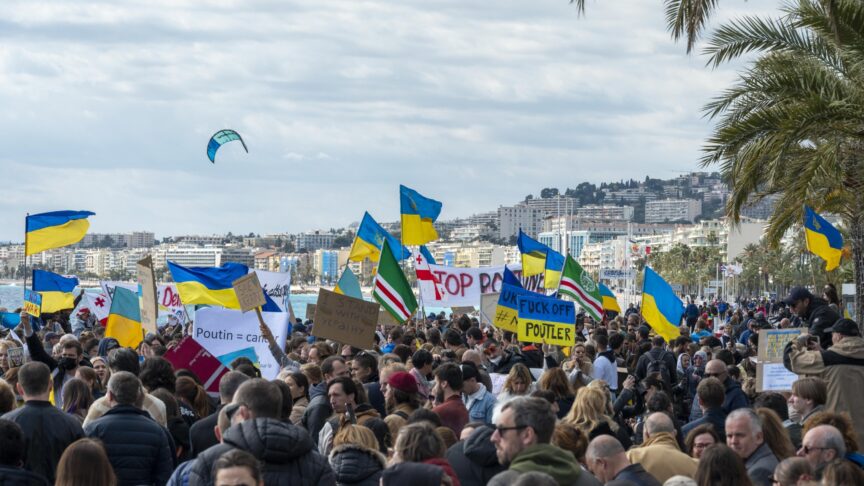
What kind of role did foreign policy play in the election campaigns before Russia’s invasion of Ukraine and what role is it playing now?
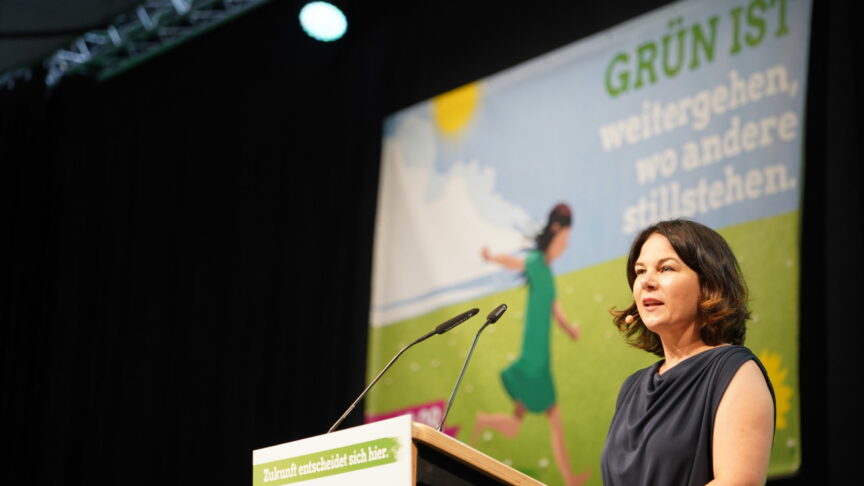
How would a (partially) Green government affect German foreign policy?

As France discovers the new making of its national assembly, this webinar will analyse the election results and reflect on their impact on a geopolitical…

This webinar will provide a snapshot analysis of election results and their implications for Europe’s foreign policy and security agenda. Featuring perspectives from selected ECFR…

Amid a volatile geopolitical environment, ECFR’s recent public opinion poll ahead of the European elections shows that a geopolitical case for Europe resonates with voters,…

Building on the success and results of the 2023 Project “France-Italy-Germany Trilateral Dialogue: in Pursuit of a common agenda”, the 2024 Quadrilateral Project will continue to promote intra-European dialogue between capitals, extending last year’s trilateral format to Spain

Migration in the Mediterranean has been a crisis factor for Europe for decades. To shed light on the issue, the discussion will revolve around ECFR’s policy brief edited by Lorena Stella Martini and Tarek Megerisi, which examines the case study of the Central Mediterranean route to analyse European externalization policies, focusing primarily on migration to Italy

Secondo appuntamento di una serie di tre working lunch realizzati congiuntamente da ECFR Roma, SDA Bocconi e l’Institute for European Policymaking @ Bocconi University
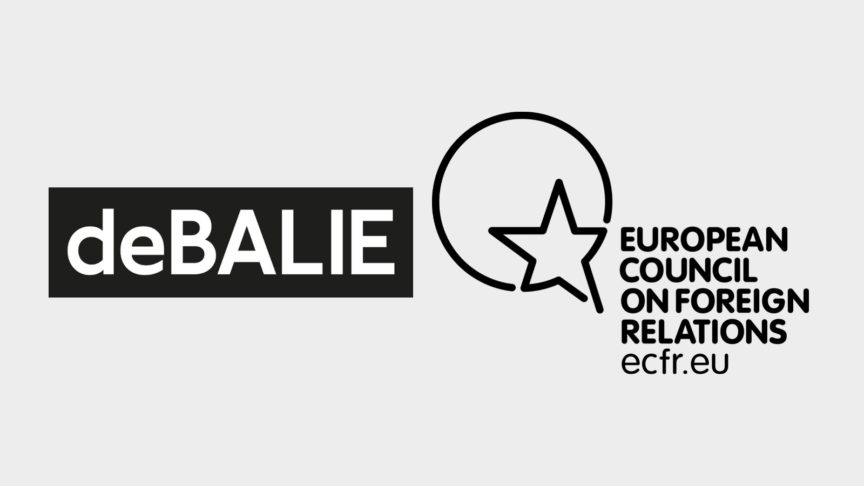
ECFR is collaborating with De Balie to discuss France’s political future and the impact of the election result on European integration and solidarity
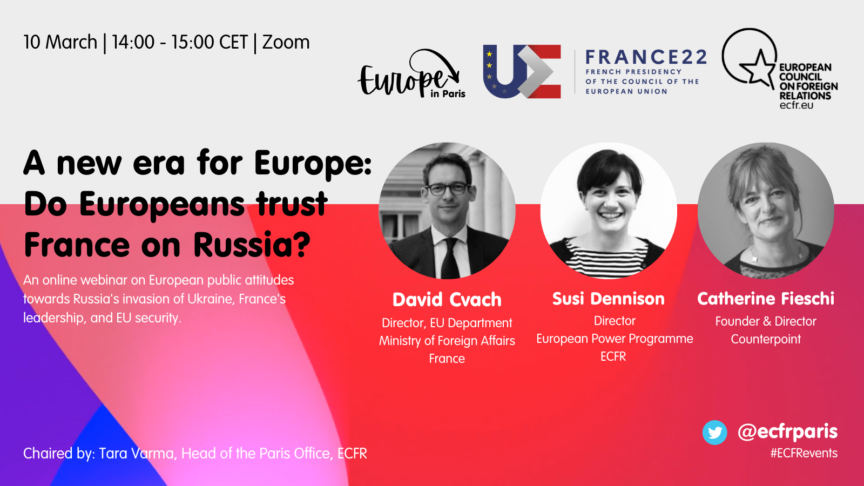
Our panel will discuss insights from new public opinion polling of 15,000 citizens across 12 EU member states, captured in the upcoming report by Susi Dennison and Tara Varma.
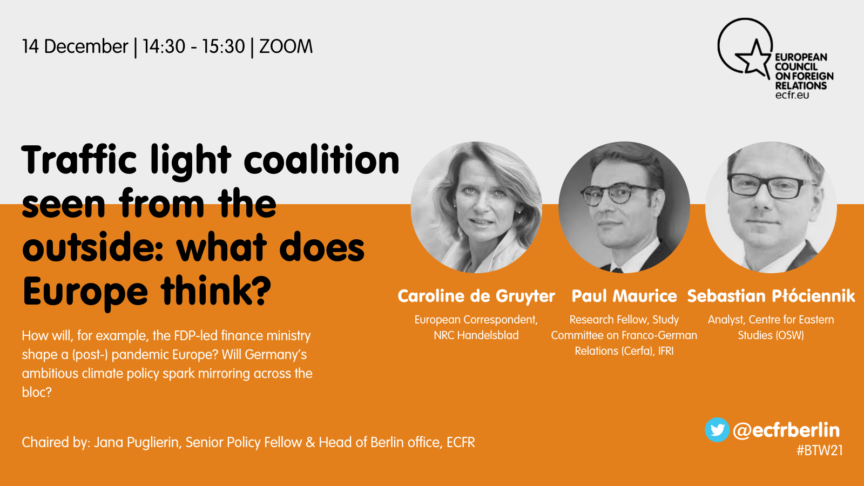
What are the expectations of the coalition´s foreign and security policies? Will Germany’s ambitious climate policy spark mirroring across the bloc?
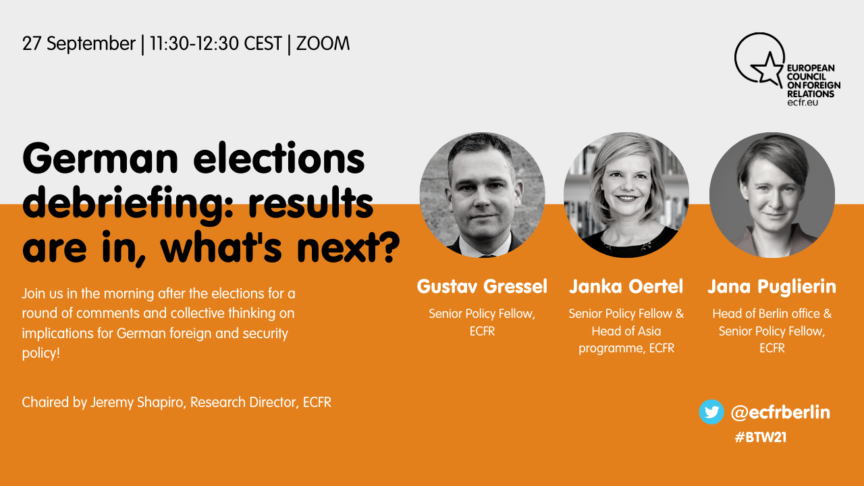
Which coalition is likely? Who are the winners and losers, and likely candidates for main political jobs?